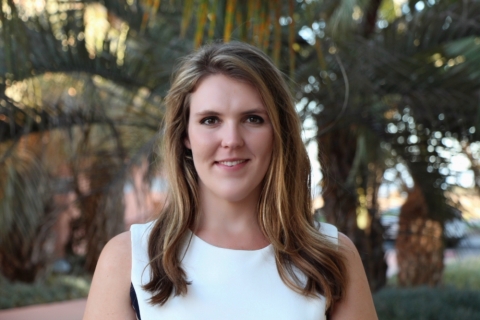
Date:
Location:
Speaker:
Title: Understanding & correlating compositions, structures, & properties of conductive networks for energy conversion & storage applications
Conjugated electrochemical materials may be the key to making large-scale energy conversion and storage devices with lower environmental impact than current industrial standards. For example, as an alternative to current expensive and non-selective precious-metal-based catalysts, N- and Fe,N-containing mesoporous carbon materials can be engineered to possess attractive properties with applications including energy conversion as fuel cell oxygen reduction reaction (ORR) catalysts, energy storage as supercapacitor electrodes, and water purification as water filtration membranes. Additionally, lithium-sulfur (Li-S) batteries have been attracting attention due to their high theoretical capacities and energy densities, with relatively low costs. However, challenges with the insulating S cathode and solubility of the S-reduction intermediates result in cell performance far below their theoretical capacities. Thus, conductive and high surface area N- and Fe,N-containing carbon materials have recently begun to be explored as SRR catalysts. It is challenging to measure and correlate local atomic environments and their distributions with synthesis conditions and macroscopic electrocatalytic properties in conductive and conjugated material networks due to paramagnetic and/or conductive properties, complicated distributions of disordered and ordered regions, and heterogeneous material compositions.
The objective of my thesis has been to improve understanding and viability of alternative energy conversion and storage materials. This objective encompasses many material systems. Promising systems which will be addressed in this dissertation include 1) boron clusters for solid-state redox, 2) conductive polymers in semi-transparent organic solar cells, 3) perovskites undergoing fluoride ion intercalation, and 4) the main system discussed throughout this dissertation which is mesoporous N- and Fe,N-carbons for oxygen & sulfur reduction. Key characteristics exhibited by these systems include 1) that they are comprised of extended networks with non-stoichiometric compositions, 2) that they consist of complicated heterogenous distributions of ordered and disordered structural features, and 3) their atomic-level structures are important to electron transport and electrochemical activity. In addition to conventional characterization techniques such as nitrogen sorption, X-ray photoelectron spectroscopy, Raman spectroscopy, 57Fe Mössbauer spectroscopy, X-ray diffraction, solid-state NMR spectroscopy and DFT modeling calculations provide detailed atomic-level insights about the environments and distributions of nuclei which, until now, had limited use in the study of this class of materials. Specifically, solid-state nuclear magnetic resonance (NMR) spectroscopy is sensitive to atomic environments in both ordered and disordered regions of a material and can provide significantly enhanced resolution of environments which are corroborated by DFT predictions of chemical shift values. Correlating macroscopic electrochemical reduction activities with bulk and surface characterizations provides insight about material composition on many length scales enabling systematic selection and tuning of synthesis/post-synthetic processing conditions to improve the macroscopic conductivity and electrocatalytic activities. This thesis details my contributions to the field, which relate understandings of the local atomic environments and interactions with complicated macroscopic properties and performance. Specially, allowing for more strategic synthesis and optimization strategies than have been typically employed in the past.



